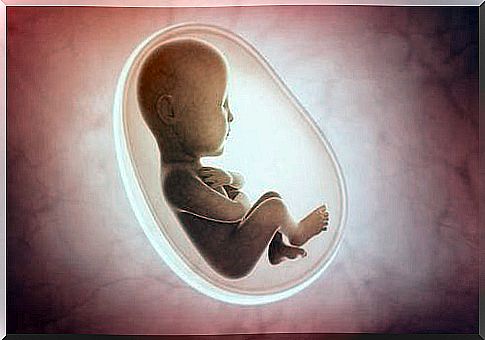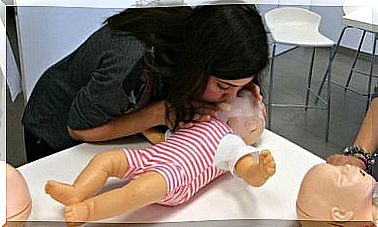What Is A Growth Retarded Fetus?

Pregnancy is one of the most pleasurable moments in a woman’s life. However, it is also a stage that comes with certain risks and concerns. One of the complications that can occur is growth retarded fetus.
Although it is not that frequent, it is still important to know about this condition. This complication causes the fetus to have a size that is below average.
What is a growth retarded fetus?
This problem, also known as intrauterine growth retardation, is a medical condition that signals that a baby’s growth is below normal standards. It is important to mention that these babies are not only of small but the rate of their growth is reduced while they are in the womb.
The consequences of intrauterine growth retardation include low birth weight, as well as other complications at birth. Low birth weight refers to a weight that is under 2.5 kilos
Types of intrauterine growth retardation
The classification of intrauterine growth retardation will, in principle, depend on the origin of the anomaly. Therefore, babies may suffer from symmetrical or internal intrauterine growth inhibition, typical of certain chromosome deficiencies.
In this case, there is a reduced growth of the whole body, extremities, abdomen and head.

External or asymmetric intrauterine growth retardation can also occur, which, as a rule, is due to an irregularity in the placenta. In this case, the head can develop normally while the abdomen and extremities remain small.
At the same time, there is another form of intrauterine growth inhibition that is combined. In this case, the condition is the result of unknown causes. It is important to emphasize that not all small babies suffer from intrauterine growth retardation.
Therefore, it is important to rule out factors such as genetic problems. Of course, if the parents are small, the baby is also prone to becoming small. At the same time, the baby’s small size may be a result of other pathologies.
Causes of growth retarded fetus
The causes of this complication can be diverse. In general, it has to do with a malfunction of the placenta. This organ connects the mother and the fetus and it administers the nutrients that the baby needs.
However, if the placenta does not function properly, it can cause growth retarded fetus. There are also other factors that can cause this condition, which we will take a closer look at below:
Environmental conditions
Experts believe that pregnant women living in higher environments are more likely to give birth to small babies.
This may be due to the amount of oxygen in the air that is lower at higher altitudes. Something similar occurs with future mothers living in highly polluted cities.
Harmful habits
Another cause of intrauterine growth retardation may be the damaging habits of the mother. For example, smoking during pregnancy, drug abuse and alcohol abuse. These addictions can cause serious consequences for babies, including very low birth weight.
Diseases
Diseases such as arterial hypertension, heart defects and metabolic changes can be to blame. Each of these conditions can reduce the amount of oxygen, vitamins and minerals that reach the placenta. As a result, the fetus is not able to develop properly and will, therefore, suffer from intrauterine growth retardation.
Furthermore, if the mother takes medication for these problems, then there is an increased risk of this condition. Similarly, poor nutrition, exhaustion, and lack of information can all lead to a lower-than-normal birth weight.
Other reasons
Other causes that can cause this condition include genetic changes, such as Down syndrome and Turner syndrome. The condition can also be a result of malformations of the fetal organs, infections in the uterus and even of multiple births.
How is a growth retarded fetus diagnosed?
To detect and diagnose this condition, mothers must undergo appropriate prenatal checks and ultrasound. This will allow doctors to observe whether the blood is flowing properly to the placenta, as well as the function of this organ.
These procedures are simple and routine and do not pose any risk. They are fundamental to preventing major complications.

What are the chances of survival for a growth retarded fetus?
In most cases, babies who suffer from this condition improve quickly after birth. According to their growth, doctors may recommend observing the babies in an incubator until they can eat themselves and gain enough weight.
Finally, intrauterine growth retardation is a condition that can occur at any stage of pregnancy.
The causes are different and it is possible to have a good prognosis. Ideally, mothers should follow the indication of their doctor and undergo prenatal checks, as indicated.









